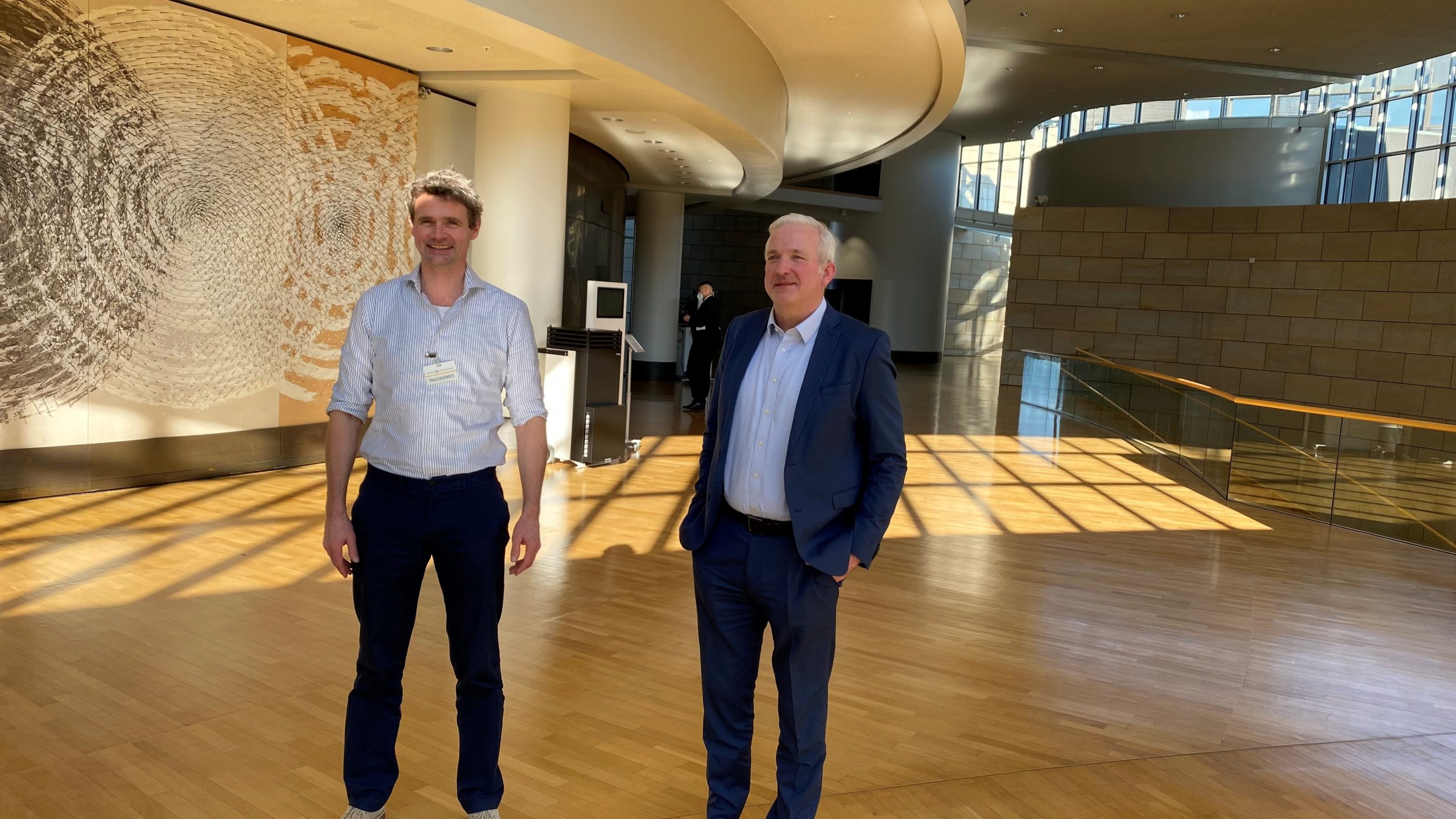Russia’s invasion of Ukraine already has caused a diplomatic crisis, an economic crisis, and an energy crisis in Europe.
Will it also create a food crisis?
ໃນຖານະເປັນຊາວນາຊາວເຢàºàº¥àº°àº¡àº±àº™, I’m here to tell you a hard truth: We are in trouble and the world’s food supply is facing an unprecedented crisis.
The political leaders of Europe have put us in a horrible position because they had embraced agricultural policies that are making it harder for farmers like me to produce food even as we support the goals for the EU Green Deal.
Some of these policy leaders don’t want you to know this, and lately they’ve adopted a strategy of denial.
“Our citizens are already terribly worried about so many things," àºà»ˆàº²àº§ EC vice president Frans Timmermans. “Let’s not add to their anxieties with false problems.â€
Finally, more leaders are beginning to acknowledge that we’re on the edge of a global food shortage. “President Putin’s war against Ukraine is placing global food security under severe strain," àºà»ˆàº²àº§ the leaders of the G7 in an official statement on May 8.
 Russia and Ukraine usually account for more than a quarter of the world’s wheat production, but they won’t this year. Consumers already are paying for these shortfalls through inflated food prices, and these new costs are about to get worse: àºàº´àº™à»€àº”ຠjust announced a ban on wheat exports.
Russia and Ukraine usually account for more than a quarter of the world’s wheat production, but they won’t this year. Consumers already are paying for these shortfalls through inflated food prices, and these new costs are about to get worse: àºàº´àº™à»€àº”ຠjust announced a ban on wheat exports.
India is the world’s second-largest producer of wheat, and normally we’d hope it might make up for some of the losses caused by the war between Russia and Ukraine. The export ban means that it will contribute almost nothing.
 This puts extra pressure on farmers like me. I grow winter wheat on my farm in Germany, in addition to barley, canola, àºàº±àº”ຕາຂàºàº‡ vegetarianism à»àº¡à»ˆàº™àºªàº¹àº‡àºžàº½àº‡à»àº•à»ˆà»€àº¥àº±àºàº™à»‰àºàº. I also raise pigs. Every day, I do my best to produce food.
This puts extra pressure on farmers like me. I grow winter wheat on my farm in Germany, in addition to barley, canola, àºàº±àº”ຕາຂàºàº‡ vegetarianism à»àº¡à»ˆàº™àºªàº¹àº‡àºžàº½àº‡à»àº•à»ˆà»€àº¥àº±àºàº™à»‰àºàº. I also raise pigs. Every day, I do my best to produce food.
Yet our political leaders have made it harder than ever. Russia’s military aggression against Ukraine was a shock, but they’ve made separate choices that aggravate the bad consequences of the war.
Farmers and consumers are already paying a price for their mistakes: The cost of food is now rising faster than general inflation.
Before anybody worried about war between Russia and Ukraine, the European Commission adopted the “European Green Dealâ€â€”an ambitious plan to make our continent “climate neutral†by 2050.
It may be a worthy goal, but at the time of its announcement two years ago, ຂ້າພະເຈົ້າ warned that the endeavor was “a plan to eliminate modern farming in Europe.†The original policy initiative called for huge reductions in the use of fertilizer and crop-protection products and insists that 25 percent of all European farmland become organic.
This would be a questionable strategy in a period of abundant prosperity. ດຽວນີ້, in a time of war, inflation, and supply-chain shortages, it’s madness.
“Organic farming is ineffective, land hungry, and very expensive, and it would leave billions hungry if it were embraced world-wide," wrote Bjorn Lomborg in the Wall Street Journal recently. It produces between 29 percent and 44 percent less food than other conventional forms of agriculture.
This is a recipe for failure—and that’s not just a theory. We have recent proof from Sri Lanka, whose president last year ordered his country’s farmers to convert to organic production. The results were both predictable and disastrous, and they were compounded by the collapse of the tourism industry due to the pandemic as well as other poor choices by political leaders.
“Nearly a year later, Sri Lanka lies in economic ruin, with basic food items scarce, hospitals out of medicine, and lines for fuel stretching for blocks," reported the New York Times on May 14.
To avoid this grim fate, European leaders should spend more time listening to the professional opinion and expertise of farmers. The time to act is now. European grain farmers like me are making fall 2022 planting decisions today in preparation and anticipation of the 2023 harvest.
 We need affordable fertilizer and fuel. We need access to the innovative technology products that protect crops from weeds, ສັດຕູພືດ, disease, and extreme weather challenges. We need policies that embrace everything from precision applications to modern seed and crop protection technologies.
We need affordable fertilizer and fuel. We need access to the innovative technology products that protect crops from weeds, ສັດຕູພືດ, disease, and extreme weather challenges. We need policies that embrace everything from precision applications to modern seed and crop protection technologies.
Europe in fact can meet many of its climate goals by embracing agricultural technology expertise and not ideology. ໃນຟາມຂàºàº‡àº‚້àºàº, àºàº»àºâ€‹àº•àº»àº§â€‹àº¢à»ˆàº²àº‡, we’ve used cover crops for more than 25 ປີ. This helps remove carbon from the atmosphere and puts it in the ground. We also practice minimum tillage, which limits soil erosion, improves biodiversity, and reduces greenhouse cases.
We can produce the food that the world needs and meet the goals of the EU Green Deal – Farm to Fork strategy without endangering food security in the process.


